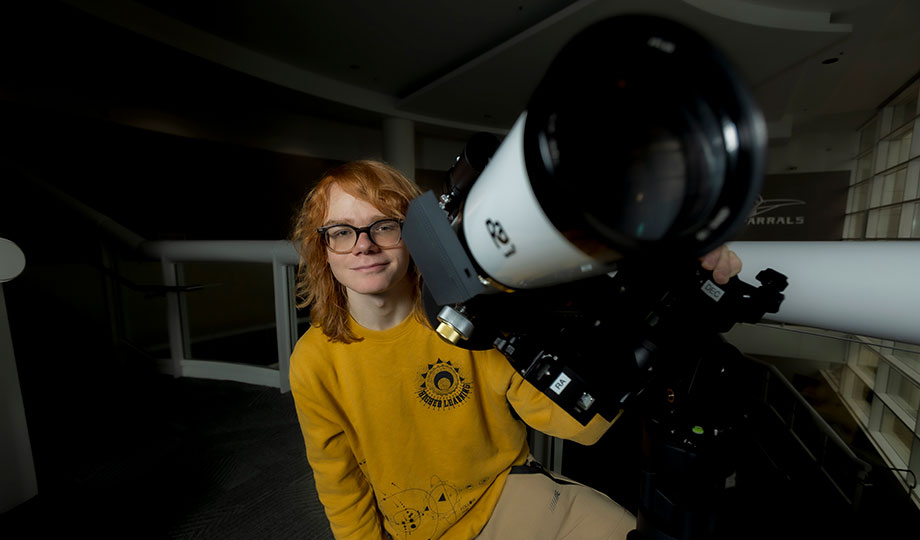The Astronomy program provides students with the foundation and direction for a successful career in astronomy. Students can follow the Astronomy Transfer Pathway and earn an Associate in Science degree.
Paired with Earth Science courses, astronomy teaches students the structure and evolution of the solar system, an overview of the universe and how to observe the heavens. In-class lab exercise will broaden and deepen learning.
Students also have the opportunity to participate in Astronomy Club. The Astronomy Club enables students to connect with other astronomy students, attend field trips to museums and observatories and learn more about the history of astronomy.
Determine Your Path
Become a researcher and educator or find employment in an observatory, laboratory, planetarium or museum.
Whether you are planning for a degree in astronomy, planning to transfer to a four-year college or university or updating your skills, COD offers:
- Dedicated instructors with years of industry experience and certification.
- Instruction in top-notch facilities and cutting-edge equipment, including the Immersive Visualization Lab and Augmented Reality/Virtual Reality Room.
- Flexible course schedules with day and evening classes, online learning and accelerated hybrid classes.
- Affordable programs that get you on the fast track to success without breaking the bank.
- An innovative transfer program that facilitates a convenient, affordable and streamlined approach to earning a bachelor's degree.
Associate in Science
The Astronomy Transfer Pathway, Associate in Science degree program represents a typical course schedule or sequence for a student planning to complete the Associate in Science degree within two years, then transfer and major in a specific discipline.
Get Started Today
The first step to getting started in astronomy is to apply for admission.
Academic and Career Pathways give you a roadmap to achieving your career goals. Follow a pathway based on your degree or certificate that outlines which classes you need to take and when so you graduate on time or move on to the next phase in your career.
Earth Science Program graduates will:
- Identify the risks, societal impacts, and appropriate responses to earth-related processes that may include geological, astronomical, atmospheric, and hydrological issues.
- Examine and explain the interrelationships among at least two of the following systems: geological, astronomical, atmospheric, and hydrological.
- Apply the scientific method within the context of the Earth Sciences.
- Select appropriate resources to evaluate current societal issues.
- Integrate knowledge of fundamental Earth Science concepts with social concerns regarding the sustainability of natural resources and/or the risks associated with natural hazards.
College of DuPage partners with several four-year institutions to help students seamlessly complete a bachelor’s degree in earth science. Students can connect with Transfer Services for personalized guidance on transfer opportunities.
For more information about Transfer Pathways, visit the College of DuPage Catalog. The pathway outlines a typical two-year course plan for completing an AA or AS degree before transferring to a four-year program. Course requirements vary by institution, so consult your faculty or academic advisor for specific guidance.
Articulation Agreements
College of DuPage maintains transfer agreements with many colleges and universities to ensure a smooth transition toward a bachelor’s degree. These agreements often include a defined course sequence. Students should regularly meet with a faculty member or Advising Services to stay on track.Transfer Guides
Beyond articulation agreements and guaranteed admission programs, College of DuPage courses transfer to many other institutions. Transfer Guides help students select COD courses that meet prerequisites for specific majors and include details such as contact information, major requirements, general education requirements, and transfer policies.Tour the Immersive Visualization Lab

The Immersive Visualization Lab produces images in 360 degrees, warping students to just about anywhere on Earth or space. See what it is like to be inside.
Career Information
Explore careers based on your interest, location and salary range or view top occupations by income.




